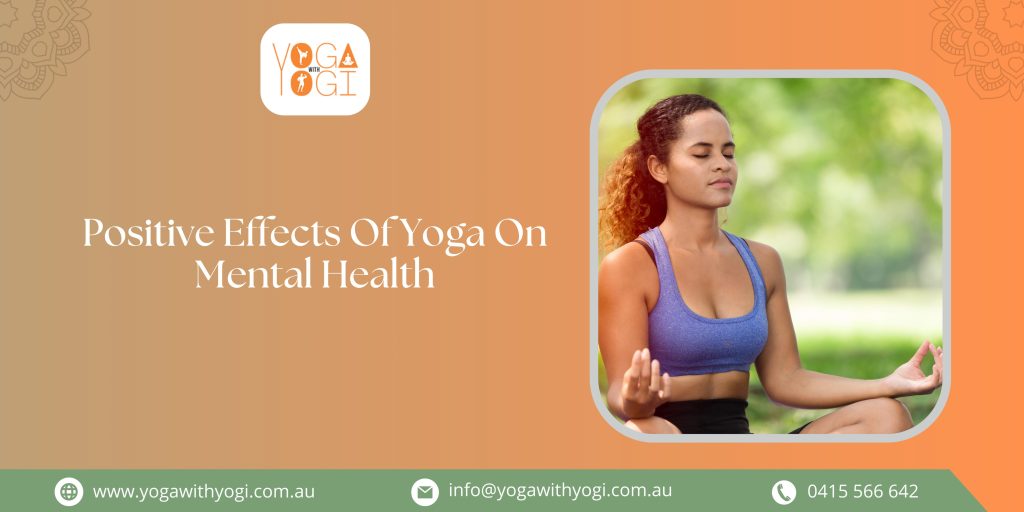Yoga’s popularity has grown in recent years, surpassing its historical origins and being recognized for its profoundly positive effects on mental and physical health. This complete approach to well-being incorporates physical postures (asanas), breath control (pranayama), meditation, and ethical guidelines. Knowing how yoga affects mental health is more important than ever as stress levels in modern life rise. Research shows that 86.2% of yoga practitioners report that their mental health has improved. Joining online yoga classes Australia can be a game changer for your mental health and we will discuss the positive effects of yoga on mental health in this article
Yoga and mental health
Reduces stress
Stress is a common occurrence in modern life, and prolonged stress can cause a variety of mental health problems, such as depression and anxiety. Stress management with yoga has been demonstrated to be quite successful.
The parasympathetic nervous system is stimulated by yoga activities, especially deep breathing and relaxation techniques, which help encourage a peaceful and relaxed frame of mind.
Research has indicated that practicing yoga can effectively reduce cortisol levels, which are the body’s main stress hormone. Stress and anxiety are known to diminish with lower cortisol levels.
The discipline of mindfulness, or being totally present in the moment, is encouraged by yoga. Rumination and other negative thinking patterns, which are frequently made worse by stress, can be lessened by practicing mindfulness.
Helps in relieving anxiety
One of the most prevalent mental health conditions in the globe is anxiety disorder. An organic and inclusive method of controlling anxiety is provided by yoga. By bringing the autonomic nervous system into balance, yoga practices help lower the hyperarousal states linked to anxiety.
Gamma-aminobutyric acid (GABA), a neurotransmitter with a calming impact on the brain, has been shown in studies to be elevated by yoga. Holding poses can help people confront and bear painful feelings and sensations in a safe setting. It can function as a type of exposure therapy.
Helps in fighting depression
A devastating illness that affects millions of individuals is depression. Yoga has become a well-liked alternative treatment for depression.
Online yoga sessions are a great way to practice yoga since they increase the creation of serotonin, which is essential for mood control.
Both a cause and a symptom of depression are inadequate sleep. Yoga can improve the quality of sleep, which will lessen the symptoms of depression. Frequent yoga practice increases self-efficacy and accomplishment, which can combat the powerlessness and poor self-worth that are typical of sadness.
Improves Cognitive function
The cognitive benefits of yoga include enhanced focus, memory, and executive functioning. Regular yoga practitioners have been shown in studies to have larger gray matter volumes in the parts of the brain related to memory and attention. By teaching the mind to stay in the present moment, yoga’s meditative elements improve the brain’s capacity for concentration and focus.
Yoga encourages neuroplasticity, which is the brain’s capacity to restructure itself through the creation of new neural connections. This is essential for memory and learning.
Manages emotional experiences
The capacity for good management and response to emotional experiences is known as emotional regulation. Emotional regulation can be considerably improved by yoga practice. Improved resilience and emotional control are linked to higher heart rate variability (HRV). It has been demonstrated that yoga increases HRV.
Online personal yoga classes in Sydney support a thoughtful attitude toward emotions, encouraging acceptance and non-reactivity, which aids in better emotional response management.
Yoga can improve relationships and lower interpersonal stress by encouraging increased self-awareness and compassion, which further supports emotional well-being.





